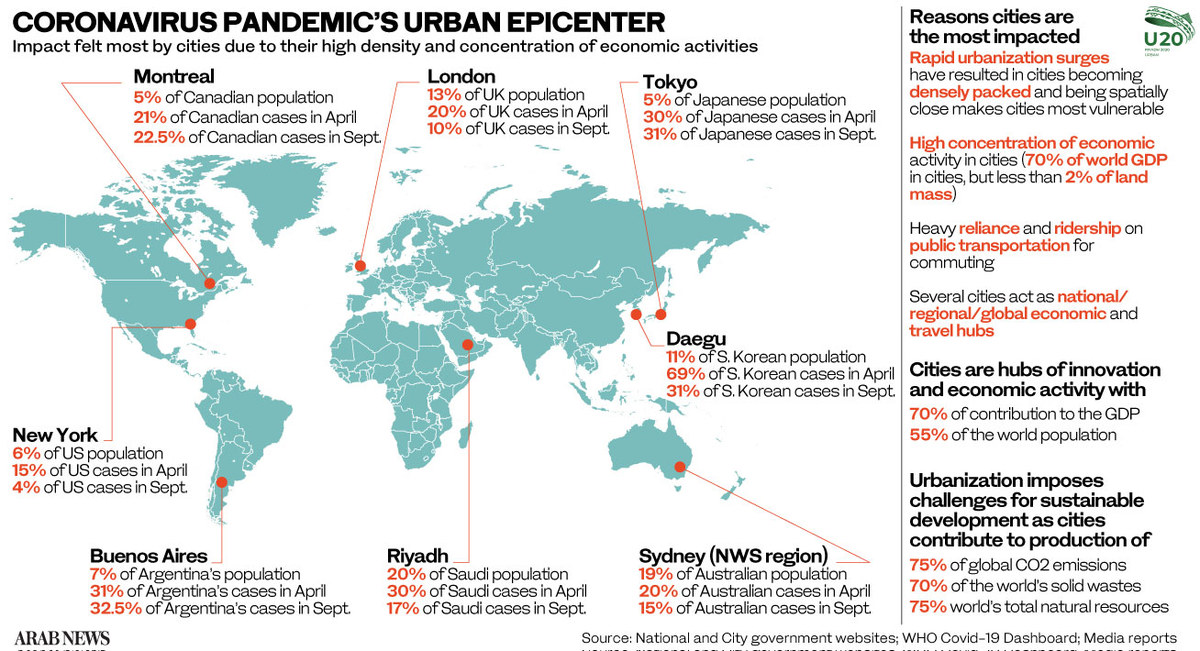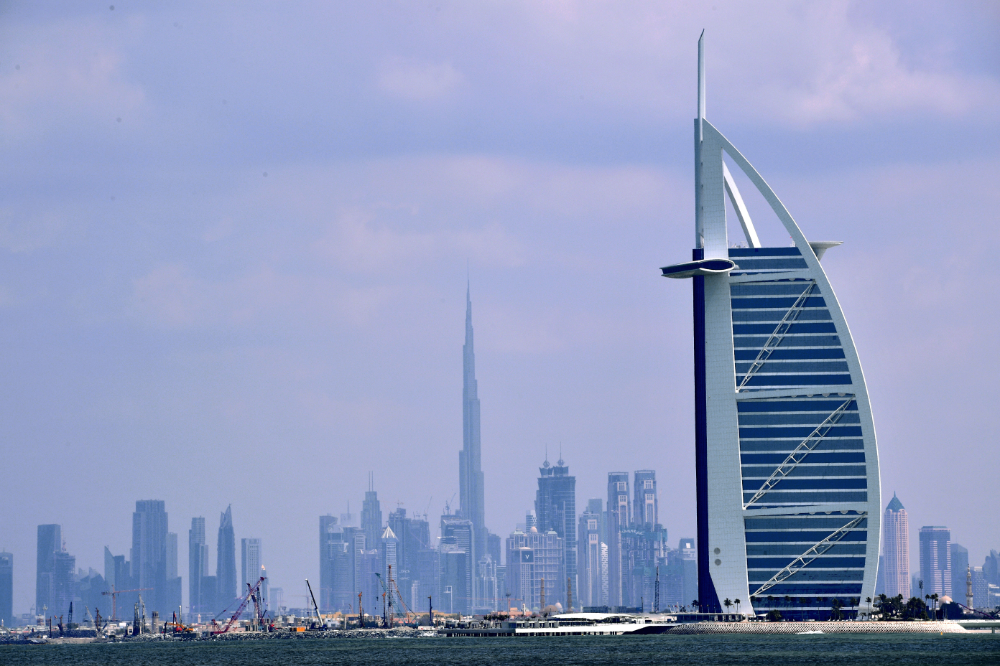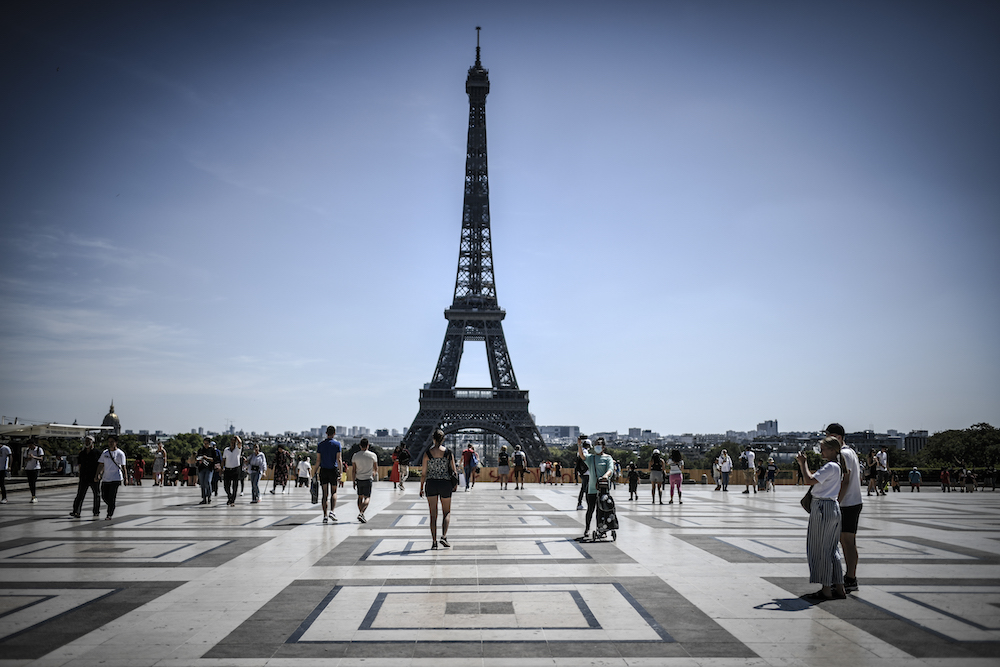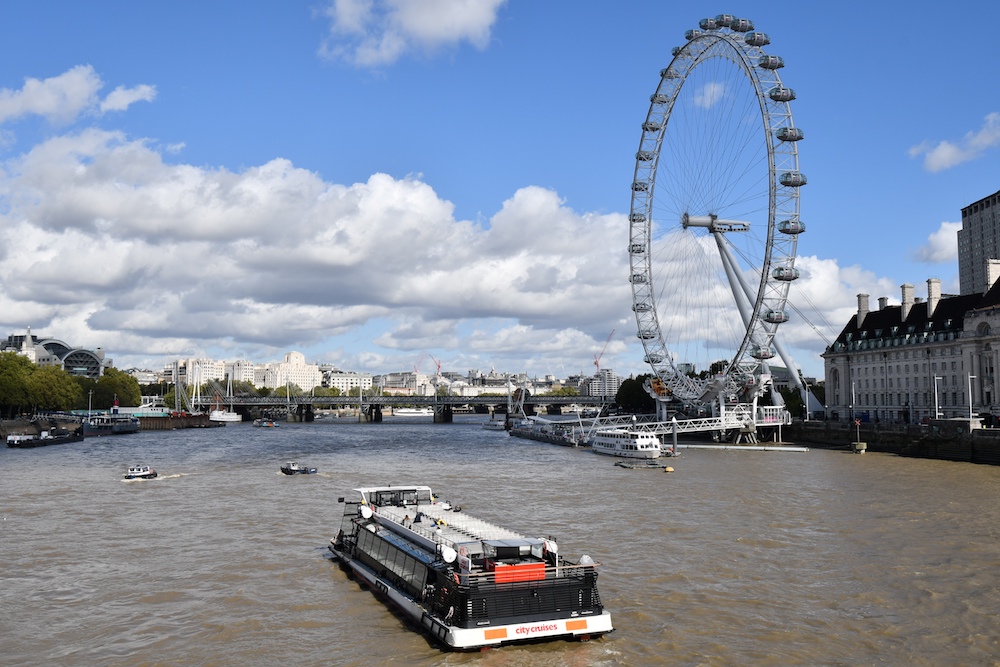DUBAI: The year 2007 was a momentous one for mankind. That year, according to the United Nations, for the first time in history, more people lived in urban than in rural locations. The concept of the city — which had been inexorably advancing for several thousand years — was finally dominant.
The trend towards urbanization began in the Middle East, so it is fitting that over the next three days the region will again be at the center of strategic thinking about the urban phenomenon as it faces perhaps its most serious challenge ever — the threat of the COVID-19 pandemic.
The first high-density settlements were in Egypt and what became modern-day Iraq. Although they were little more than small towns by today’s standards, the attraction gradually spread around the world. Industrialization and the age of technology gave it the final boost. Now most of us are “citizens” — in the original meaning of the word.

People leave the village and move to the city for a variety of reasons. They seek lifestyle enhancement, they want to better themselves materially, they are looking for work, or education or medical care. Maybe they are just looking for company.
Cities have proved to be one of mankind’s most successful innovations. Some 70 percent of global gross domestic product is generated in cities, which are recognized as hubs of innovation and technological and scientific progress. The attraction of cities throughout history is that they provide all these things in close proximity.
But they are also the location — some rural dwellers would even say the inspiration — of all the opposites: poverty, crime, discrimination and the modern alienation of “urban loneliness”. Along with all that urban prosperity, cities also produce 75 percent of all global carbon dioxide emissions, around 75 percent of all the refuse and waste products we struggle to dispose of, and, on top of that, they consume 75 percent of the world’s natural resources.

A picture taken on March 24, 2020, shows the skyline of Dubai in the United Arab Emirates, with a view of Burj Al Arab (R) and Burj Khalifa (L), the world’s tallest building. (AFP/File Photo)
Nothing illustrates the dichotomy better than the age of the pandemic. Cities are the perfect incubator for the disease, as New York or Milan can tragically testify. But they can also be the location of the best healthcare facilities, and a better environment in which to lock down, as Singapore or Seoul bears witness to.
Cities have been at the epicenter of the global outbreak and suffered greater impact due to high density and the concentration of economic activities. Despite cities’ overwhelming contribution to global GDP, they account for only 2 percent of the world’s land mass.
Rapid urbanization surges have resulted in cities becoming densely packed and in close spatial proximity, making them more vulnerable. They have also acted as vectors for the disease, with heavy reliance on public transport and car ridership, as well as being the hubs for regional, national and international travel.
Over the next three days, experts — mayors, civic leaders and urban planners among others — from around the world will come together in the U20, the urban track of the G20 leaders’ organization this year under the presidency of Saudi Arabia.
It is the third occasion that the U20 has met, and delegates from around the world will debate — virtually — all the familiar issues of urbanization: mobility, transportation, architecture and design, demographics, education and social services. But in 2020, they will debate for the first time whether the pandemic is, as some analysts believe, the death knell of the city.
“The pandemic has the potential to really affect cities,” Peter Clark, professor of European urban history, has said, pointing not just to the exodus of people fearing infection — like they did from plague outbreaks in the medieval world — but also the long-term adoption of working and socializing habits that have become the norm during the coronavirus lockdowns.

In this file photo taken on August 6, 2020 tourists visit the Esplanade des Droits de l'Homme with the Eiffel tower in the background, in Paris. (AFP/File Photo)
Mark Zuckerberg, the founder and CEO of Facebook, says he expects half his company’s workforce to be working from home in the next 10 years, and many other executives are thinking about the future of their businesses in the age of “telecommuting.”
Even if they don’t leave en masse, avoiding the prospect of “ghost cities,” the economics of modern urban life is likely to change dramatically. Highrise and high-density office space will become less attractive and financially viable, while the armies of support workers that make urban life bearable — from metro drivers to sandwich makers — will come under economic pressure to move too.
However, many experts believe that, although urban communities will have to adapt to the new post-pandemic reality, there is still much to admire and appreciate about city life. In the Middle East, home to many of the fastest growing cities on the planet, that is certainly the case. For example, it is hard to see dynamic hi-tech metropolises such as Dubai and Manama — fishing villages in the lifetimes of some of their older inhabitants — ever reverting to their previous roles.

A near-deserted tourist boat travels past the London Eye in central London on September 24, 2020, during the novel coronavirus COVID-19 pandemic. (AFP/File Photo)
Certainly Riyadh — from where the U20 is being virtually run — has few doubts about its future. The city has grown exponentially in size in the past few decades, and is now home to 7.5 million people. But it is also in the middle of a multibillion-dollar expansion strategy that will see it grow to 15 million inhabitants by the year 2030, with plans to improve the quality of life for its residents with greater mobility, more public spaces and communal leisure facilities, and all the trappings of an artistic and cultural hub.
Fahd Al-Rasheed, president of the Royal Commission for Riyadh City, spoke recently of the ambition to turn the Saudi capital into something like Florence during the Italian Renaissance. It is difficult to see how that could even be contemplated if an age of social distancing was near.
Cities have risen and fallen throughout history, but have always been succeeded by another, usually grander, urban metropolis. A wise English writer, Samuel Johnson, said: “When a man is tired of London, he is tired of life.” History suggests that principle applies not only to the British capital, but to the very concept of the city.
-----------------------
Twitter: @frankkanedubai



























